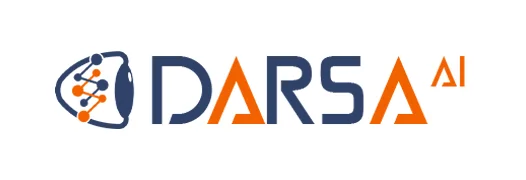In today’s healthcare landscape, hospitals face significant challenges in providing continuous, high-quality patient care, particularly during night shifts when staffing levels are typically lower. Darsa AI’s advanced computer vision technology offers a groundbreaking solution to address these critical issues, focusing on patient safety and proactive care.
The Challenge: Unattended Patients and Fall Risks
The nursing shortage in hospitals has reached critical levels, with devastating consequences for patient safety

Nurse-to-Patient Ratios
- The average nurse-to-patient ratio in US hospitals is 1:6, but can be as high as 1:8 during night shifts.
- Studies show that for every additional patient per nurse, the likelihood of patient mortality increases by 7%.
Fall Incidents
- Falls are the most common adverse events in hospitals, affecting up to 1 million patients annually in the US alone.
- 30-50% of falls result in injuries, with 6-8% causing serious harm.
- The average cost of a fall with injury is $14,000, translating to an annual cost of $50 billion for fall-related injuries.
Unattended Patients
- Up to 60% of hospital patients report feeling unattended or inadequately monitored, especially during night hours.
- Delayed response to patient needs can lead to complications and extended hospital stays.
Our cutting-edge AI-powered surveillance system transforms patient monitoring and fall prevention:
24/7 Patient Monitoring
- AI-enabled cameras provide continuous, non-intrusive monitoring of patient rooms.
- Privacy-preserving technology ensures patient dignity (faces are blurred) while maintaining vigilance.
Fall Detection and Prevention
- Advanced algorithms detect pre-fall behavior patterns, allowing for proactive intervention.
- Immediate alerts are sent to nursing staff when a fall risk is identified or a fall occurs.
Activity Analysis
- AI tracks patient movement and behavior, identifying unusual patterns that may indicate distress or discomfort.
- The system learns individual patient baselines, allowing for personalized care alerts.
Staff Optimization
- Real-time data on patient needs helps optimize nurse rounds and resource allocation.
- Reduces unnecessary check-ins, allowing staff to focus on patients who need immediate attention.
Integration with Hospital Systems
- Seamlessly integrates with existing Electronic Health Records (EHR) and nurse call systems.
- Provides a comprehensive view of patient status and history.
Customizable Alerts
- Hospitals can set specific alert criteria based on patient conditions and hospital protocols.
Key Benefits
Improved Patient Safety
- Potential to reduce fall incidents by up to 50%, saving lives and reducing injuries.
- Early intervention in cases of patient distress or medical emergencies.
Enhanced Care Quality
- More responsive care delivery, improving patient satisfaction and outcomes.
- Reduced workload on nursing staff, allowing for more focused, quality interactions.
Cost Savings
- Potential annual savings of $25 billion in fall-related costs alone.
- Reduced liability and insurance costs for hospitals.
Efficient Resource Utilization
- Optimized staffing based on real-time patient needs.
- Reduced length of stay due to fewer complications and faster response times.
Data-Driven Insights
- Comprehensive analytics on patient behavior and care patterns.
- Continuous improvement of care protocols based on AI-generated insights.
Darsa AI’s computer vision solution represents a paradigm shift in hospital patient care. By providing an extra layer of vigilance, we empower healthcare providers to deliver safer, more responsive, and more efficient care. In an era where every second counts and every patient matters, Darsa AI is at the forefront of transforming healthcare delivery, one room at a time.
